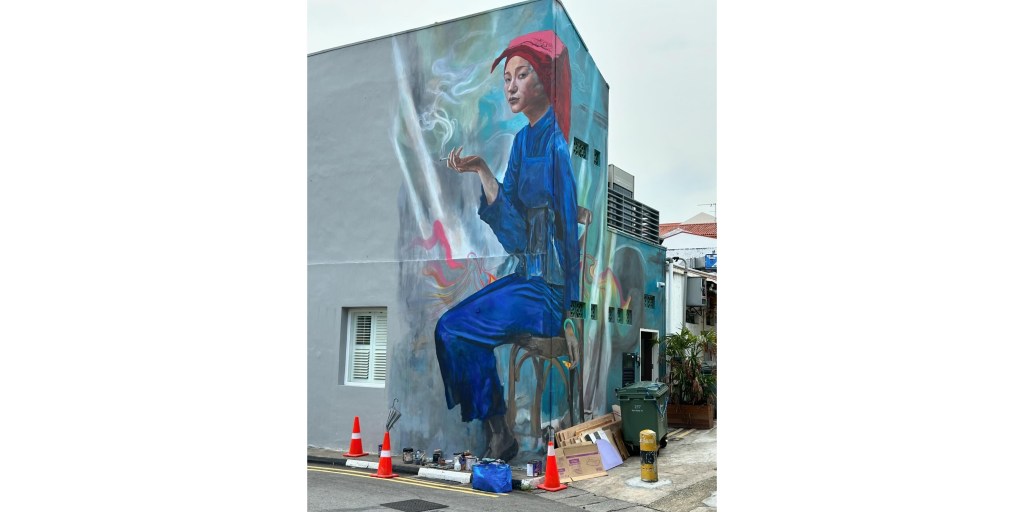A government order centered on a mural in Singapore‘s Chinatown has sparked concerns about the censorship of street art.
The large mural by Singapore-based multidisciplinary artist Sean Dunston, 50, depicts a Samsui woman holding a lit cigarette. The image is a reference to the young Chinese women who immigrated to the country in the 1920s and the 1940s for industrial jobs. The mural was completed in April.
On May 8, Singapore’s Urban Redevelopment Authority (URA) told the building’s landlord that the mural was “not aligned with Singapore’s anti-smoking policy stance.” A later email from the URA on June 18 included comments from an unnamed member of the public that said the woman depicted on the mural “looks more like a prostitute than a hard-working samsui woman” and was “offensive.”
The government agency requested a “revised proposal” of the artwork by July 3 and said a failure to comply “would be taken into consideration for any application for the renewal” of the building’s temporary restaurant permit, which expires on July 27.
News of the URA’s emails about the mural were first reported by the Straits Times.
Dunston, an American citizen who has lived in Singapore since 2009, posted about the URA’s emails and the request to remove the cigarette on Instagram on June 19.
“To the member of the public that leveled this criticism,” he wrote, “I’d like to say that sex workers are very hard working people, and should be treated with as much respect as anyone else. You should ask your Mom about it. Also, if I offended you with this depiction of a Samsui woman, trying to enjoy herself for 2 little minutes between grind after grind, then I couldn’t be more pleased about it. You’re literally my target demographic.”
Dunston said he specifically chose to depict the Samsui woman as young instead of old. “I thought it would be nice to change it up to show a younger woman and catch them in a situation when they were not working,” he told the Straits Times, calling the order from the URA “suppressing the potential of Singapore’s art” and “a bummer.”
According to the South China Morning Post, Samsui women smoked cigarettes after work and even stored them in their signature red headscarves. Many of them lived in the area where Dunston’s mural is now located.
ARTnews reached out to Dunston on Instagram for comment.
On Tuesday, the artist posted about the impact of the URA order going viral online. “Now I’m in a critique session with a couple hundred thousand people or a million people or something, analyzing my work, praising it, shitting on it, and it’s become surreal and absurd. All this dopamine and cortisol pulsing through my brain at the same time is taking its toll.”
